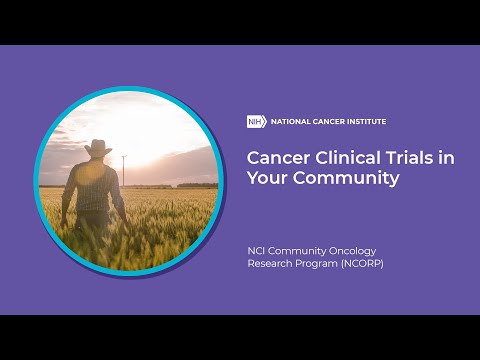The NCI Community Oncology Research Program (NCORP) was launched in 2014 to ensure that people can participate in clinical trials focused on cancer control, prevention, and care delivery, regardless of where they live.
NCORP is a network of institutions that conduct clinical trials and cancer care delivery research in the community, where most cancer patients receive their care. The NCORP network designs and conducts cancer prevention, supportive care and symptom management, screening, and surveillance clinical trials. The network also participates in treatment and imaging clinical trials conducted by NCI's National Clinical Trials Network (NCTN) and integrates health disparities research questions into NCORP studies.
The NCORP network includes 7 research bases, 32 community sites, and 14 minority/underserved community sites, including more than 1,000 affiliates across the country. The network now covers 44 states, the District of Columbia, and the territories of Puerto Rico and Guam.
- The NCORP Research Bases are research hubs that provide an established organizational structure with scientific and statistical leadership for developing, implementing, and analyzing clinical research and quality-of-life studies.
- NCORP Community Sites are consortia of community hospitals and/or oncology practices that accrue diverse patients and participants to NCI-approved research studies designed by the NCORP Research Bases and treatment trials within the NCTN.
- NCORP Minority/Underserved (M/U) Community Sites are consortia of community hospitals and/or oncology practices, public hospitals, or academic medical centers that have a patient population consisting of at least 30% racial/ethnic minorities or rural residents. M/U community sites accrue patients and participants in the same manner as the community sites.
